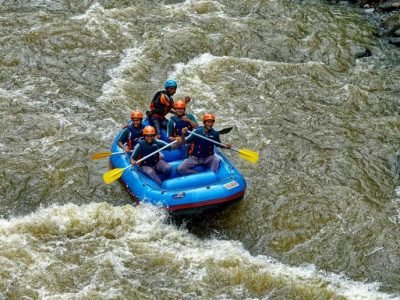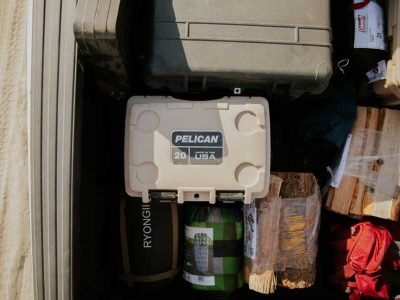Leaving home to fish requires preparation and packing, whether for a single night or an entire week. Significant tasks include arranging to lodge, planning the driving route, and preparing the vehicle and boat trailer.
There are plenty of additional items you should consider packing. It may be the difference between going home early or spending every available moment fishing. Others provide further convenience, while others contribute to your safety.
Tool chest
A toolbox aboard inflatable fishing boats should contain more than a wrench suitable for changing a tire or propeller. Reduce its size by choosing multi-functional tools, such as adjustable wrenches, pliers, and screwdrivers with interchangeable tips. Include a utility knife and Allen wrenches as well.
Add some additional components, beginning with an extra set of grease seals and bearings or a hub for your trailer. Don’t forget a few hose clamps of various sizes, duct and electrical tape, zip ties, and a range of stainless-steel screws, washers, and nuts in a small plastic box. They may assist you with rigging something to continue fishing, return home, or exit the ocean safely.
Include one extra drain plug for your boat. No one knows where they go, but they typically disappear before launch.
New baits
Each new fishing season highlights the chance to utilize newly acquired lures. They appeared to be bass-catching lures in the store; now, let’s see how they perform on the water.
In a rush to reach the lake, it may appear more practical to put the full shopping bag into the boat. However, this will cost you valuable time on the water in the long run.
Before going fishing, remove lures from their packaging and examine them well.
Should the hooks be sharpened, replaced, or enlarged? Is a split ring or snap required? Is the skirt very long? Is the line tie painted or clear-coated?
After addressing these needs, please put them in the appropriate tackle box, bag, or compartment so that you know exactly where to locate them. A few things aggravate than searching for a specific bait during a hot bite.
Accessory items
The average fishing day is not a brief affair; you launch before sunrise and load before sunset to maximize your time on the sea. However, marathon fishing sessions need not feel like running 26.2 miles. Bring goods that will make your day more joyful.
The most effective energizers are food and drink. You may believe skipping both is a better use of your time, particularly during tournaments. Yet they are also investments. When fueled and hydrated, you’ll make better choices to cover more water and fish more efficiently.
You are not required to bring a multicourse dinner. The best sandwiches are those that can be devoured while rushing between locations. Additionally, fruits and vegetables are delicious. A few cookies or sandwich crackers can help you continue the day, whether fishing for money or fun. And nothing beats an abundance of water to drink.
Place one or two rolls of toilet paper in a resealable plastic bag. You may require it, and your fishing companion may request it. It can be used to remove the Vienna sausage fluid that you dripped on the deck. Even if you never use it, knowing it exists will provide comfort.
Paper-based goods
Bass fishers are not simply fueled by boat fuel and soft-plastic lures; they also enjoy eating. Pack a variety of plastic utensils, paper plates, resealable plastic bags, and paper towels in preparation for meals. Thus, you are prepared to barbecue on the tailgate or prepare lunch for the following day.
Add paper towels to your list of essentials. They efficiently clean up after a messier meal than anticipated or after eating while driving, and it cleans nearly anything. Place them behind the rear seat, and they will be accessible whenever you need them.
Sunscreen
Sunburns can occur without warning. And while their redness and stinging will disappear within a few days, they might have permanent impacts, such as more severe and insidious disorders, such as skin cancer, later in life. Applying sunscreen will therefore prevent this from occurring.
Select a water-resistant sunscreen with a high SPF rating.
Apply it in the morning and have a bottle on board so you can reapply it frequently throughout the day. Utilize it even if you wear UV protection such as a scarf, hat, gloves, long-sleeve shirt, and jeans. It never hurts to be prepared for a blown-off hat, rolled-up sleeves, or slacks swapped for shorts.
Spares
Packing your tackle is common sense. However, most of us carry bags and boxes of spares that are frequently unneeded. Instead of getting everything, focus on the lures and soft plastics you use most often. If a black-and-blue jig is your favourite, pack multiple weights and an abundance of matching trailers.
Bring a spare spinning reel, a casting reel, and several spools of line if you have them. We all create a massive reaction that requires scissors to undo every once in a while. And when you do, you will need a new line to reactivate the outfit. Additionally, a new cable can make fishing more fun. If you employ a technique that twists your line, beginning each day with a freshly loaded spool will prevent headaches.
Plugin
It would be best to charge your boat’s batteries daily to keep the trolling and outboard motors running. Although you will seek boat-friendly accommodations with plentiful electrical outlets, you will not always locate them. You must be prepared for other power sources, especially if you want to stay in the smaller, less expensive motels that many visiting bass anglers favour.
Bring an extension cord with you. If you must run power from the interior, it will fit easier behind a closed door. Don’t forget the adapters that enable you to put a three-prong plug into a two-prong outlet or convert a light fixture into an outlet.
These will assist you in overcoming the fact that many of these motels have not been modernized in decades. Check with the front desk before converting a light fixture into an outlet, and do not forget to turn on the fixture’s switch.
Conclusion
Preparing your boat for the sea and ensuring a pleasant and successful voyage involves more effort and planning. Therefore, these seven components are not your primary concern when coupling your boat to your tow vehicle. But when the going gets tough, you’ll be grateful they’re on your side. Each can save the day, if not more.












